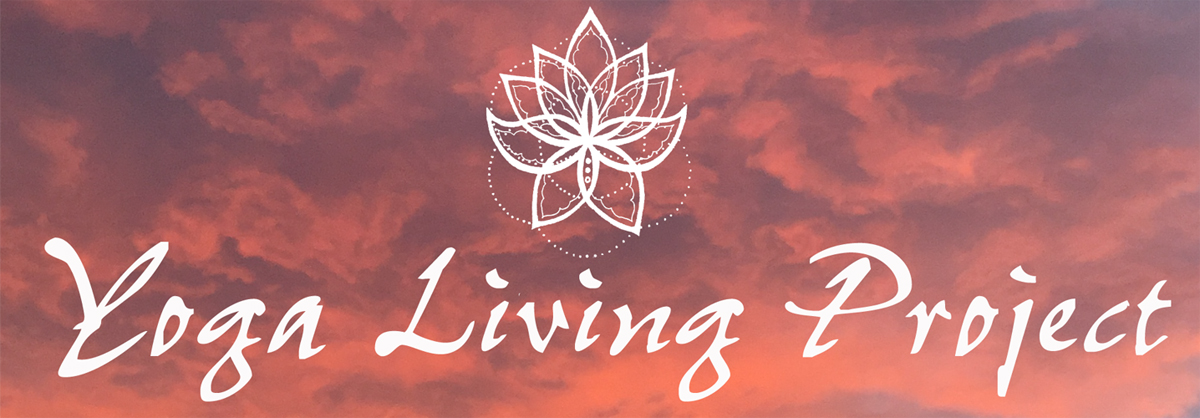Yoga Living Project is proud to welcome back Cambio Teacher Caleb Hall in this deeply heartfelt reflection of the intersection on body image and yoga. Read below to hear one person's journey. If youo have your own story to share, we'd love to hear - email
You can join Caleb for Vinyasa Flow at Cambio Pikes Peak on Sundays 10:30a and Mondays 7:15p
Breath: A Path from Shame
In 2013 I began my journey in yoga. I look back to the moment I first stepped foot on the mat with my step mother, who introduced me to yoga when I was only twelve, as a pinnacle point in my life. We would practice in our home together—following a power yoga video series she used when she was in high school. I recall yoga being a purely physical practice to me. I felt strong executing every movement. I could feel my body becoming stronger. It felt good to feel each muscle working in my thin, lithe body. I was never one to go to sports practice or hit the weights at the gym. When I found yoga, I felt liberated to discover a physical exercise that made me feel strong.
Yoga seemed to counter the expectations of the external world, however. I knew each time I reached svasana that I had intensely worked out, yet, my physique never matched those of my friends— a group of weight-lifters and athletes. Yoga, to my peers, was “for girls” and was only about stretching or becoming flexible. Suddenly, my body became a site of great confusion and shame for me. No amount of chaturangas or sustained boat poses would produce the body that I was expected to have in order to be attractive to people my age. This shame multiplied when I began taking yoga class in school and could not ignore the fact that I was usually the only male identifying person in the room. Surrounded by a room of women who all were performing a practice that generated the “ideal body type” for them made it difficult for me to let go of my self-consciousness and insecurities. I look and recognize that I was attached to the motives and expectations of my surrounding life situation— but I was a teenager in high school where the opinions of my peers played a critical role in my life.
So, why did I keep returning to my mat? Surely if something was not providing the outcome I wanted, then I should have changed and acted accordingly, right? I was caught in a dichotomy of feeling so strong during practice, yet not appearing as a strong man when I exited the studio doors and faced my peers. For a time, yoga was a pleasure to me, but simultaneously produced shame.
Shame is such a powerful emotion. As yoga instructor and author, Marianne Elliot, puts it, shame “can paralyze us.” Shame tells us that we are not worthy of feeling loved or that we are not enough. In a world of images, shame can come from anywhere. The world I grow up in is one of image. One must look strong, confident, and beautiful in the five seconds it takes to swipe up on the phone screen. I grow up in the world of “bests.” Look at how many television shows look for the best chef, best dancer, or best athlete. How many ads promise the best way to lose fat, the best way to take a selfie, the best way to do your makeup, or the best cleaner for your toilet? If you are not simply the best and can capture that in a photo or video, is there really any point?
This is the myth I grew up with and I imagine we all face it too. Although so much of this is external, it becomes our bodies that receive the brunt force of the shame when we cannot match the images of perfection. It comes from everywhere, but we absorb the shame unto our character. If we do not question this shame, it can easily keep you from acting on anything at all.
So, why do I return to the mat? I had an epiphany a few years ago when an instructor told me as I executed yet another chaturanga that, “your exhale is a moment to forgive.” Suddenly, yoga was not about the physical push-up, but the breath. Every exhale became about forgiving myself of buying into external expectations and forgiving myself of the pressure I put on myself to match perfection. Each breath was a mental “push-up” to enforce my own internal value. Sure, my exhalation was not going to build my toned muscle. However, what that exhale did do, was ensure some other aspect of strength within me.
Figuring this out felt like unlocking the truth of the universe. I wanted everyone to hear this truth that I had discovered. However, it became evident that these truths come at a moment when you are ready to receive them. Finally, I had overcome the barrier that I am more than my body.
It was not until later that I received a mantra I carry with me each day: Om Mani Padme Hum. Roughly, this means to bow to your internal truth and the seed within you. Yoga is not about adding anything. Instead, it is about subtraction. Forgiveness is about shedding the layers that block your light. Forgiveness is an action. I think sometimes forgiveness has a connotation of future or past— as if, you will forgive or have forgiven. I challenge this connotation. Forgiveness is an action that must happen in the constant, present moment. I must actively forgive.
The breath is a fleeting moment. Every inhale is a breath that you will not get back. Every inhale is different air in itself. Every exhale is a release. When I realized this, I learned that every time I execute that chaturanga, I am not doing it to become anything. I am not doing it to match a physique I was in the past or to match a physique I hope to be in the future. I do it to become more in tune with myself. The breath becomes a micro-measure of the present and an invitation to love myself as I am now. My breath is a promise of my presence and belonging.
Do I get this right every single time? No, I do not. Aparigraha, non-attachment, is a practice in itself. However, when my breath becomes a source of my belonging, the feeling of shame dissipates. I cannot define what force is behind it, but each breath reminds me that I am worthy of love. When I breath in, I am assured that my existence is worthy of life. When I breathe out, I share gratitude for the space and presence that I have been gifted to occupy. Each breath is a reminder of your belonging.

